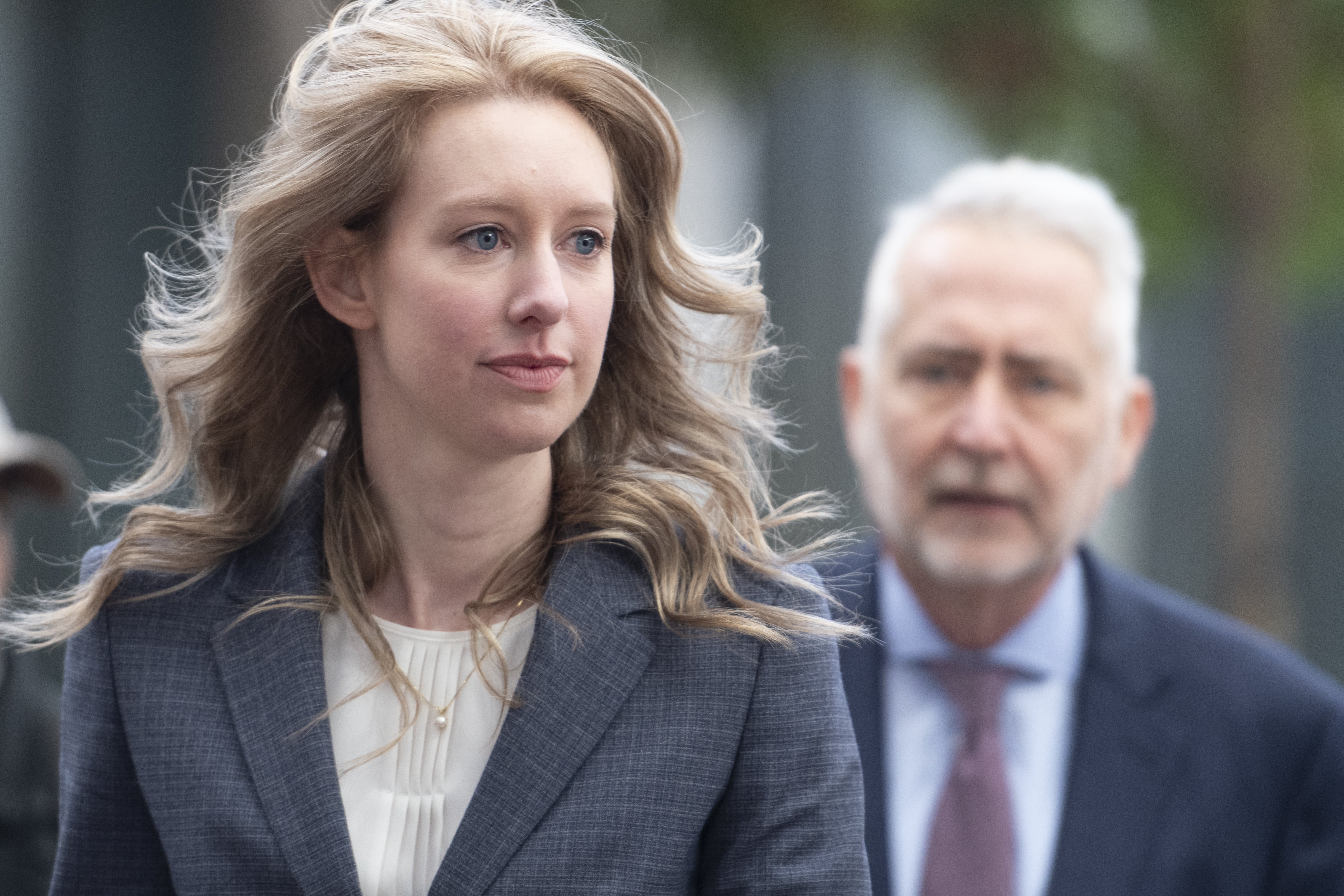Judge Edward Davila on Monday ordered that the sentencing of Theranos founder and CEO Elizabeth Holmes, scheduled for Oct. 17, be delayed so that he could hold an evidentiary hearing on her request for a new trial.
Earlier this year a jury convicted Holmes of four counts of defrauding investors regarding Theranos' blood-testing technology.
The jury acquitted Holmes of four counts of defrauding patients. Jurors were unable to reach a verdict on three other investor-related charges.
Holmes faces up to 20 years in prison and a fine of up to $250,000 on each of the four counts of wire fraud.
Judge Davila denied Holmes' motion for acquittal in September. Holmes then filed three motions for a new trial based on newly discovered evidence.
Monday's hearing focused on Holmes' motion seeking a new trial based on a surprise visit to her home last summer by key prosecution witness and former Theranos lab director Adam Rosendorff.
During that visit, Rosendorff allegedly spoke to Holmes' partner, William Evans. According to a sworn declaration by Evans, Rosendorff said that "the government made things sound worse than they were when he was up on the stand during his testimony" and that he "felt like he had done something wrong" in connection with that testimony.
Federal prosecutors countered with a sworn declaration from Rosendorff, stating that he answered all the questions put to him "truthfully" at trial, that he stood by his testimony, and that he had "no reason to believe that the government misrepresented or otherwise created a misimpression about" Holmes' conduct at Theranos.
Judge Davila questioned both sides on Monday about whether an evidentiary hearing, bringing Rosendorff back to court to testify in person, was necessary to determine whether Rosendorff felt that he had been "manipulated by the government."
Get a weekly recap of the latest San Francisco Bay Area housing news. Sign up for NBC Bay Area’s Housing Deconstructed newsletter.
Noting the "extraordinary" nature of a situation where a witness tries to visit a convicted defendant, Davila ultimately decided to hold a "limited" evidentiary hearing on October 17, the day on which Holmes was to have been sentenced, on "the possibility that the government engaged in misconduct" and whether Rosendorff "testified in an untoward way at the government's hand."
Davila said he did not need to hear any further argument or evidence before deciding Holmes' two other motions for a new trial.
One of those motions argued that arguments made by federal prosecutors at the trial of Holmes' business partner and former lover Ramesh "Sunny" Balwani suggesting that Balwani was calling the shots at Theranos contradicted prosecutors' position at Holmes' trial that she was in charge.
The other motion was based on newly discovered emails about the still-unresolved mystery of why the Theranos' patient database was not preserved.
Davila said that he would rule on the motion re Rosendorff's testimony a week to 10 days after the October 17 hearing.
He asked the prosecution and defense to confer about a new date for Holmes' sentencing, if all of her motions are denied.


